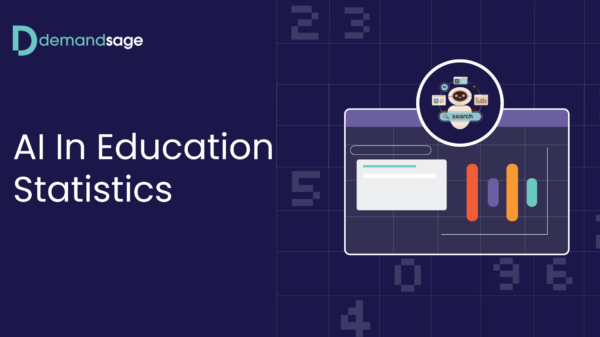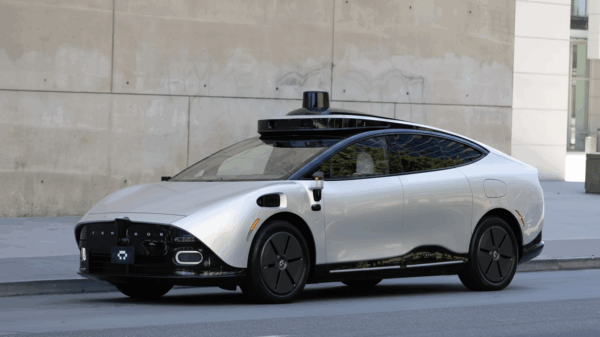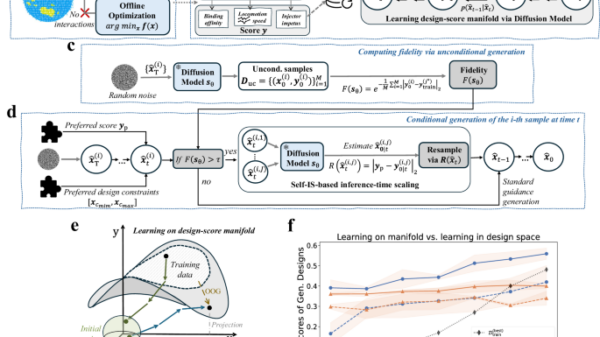Retail automation is undergoing a significant transformation as it transcends traditional applications like checkout kiosks and back-office software to integrate deeply into supply chains, warehouses, customer service, and merchandising. This evolution comes at a critical time when consumer expectations demand not only speed but also personalization in the shopping experience. A recent survey indicates that approximately 71% of shoppers desire AI integration into their purchasing journey, seeking improved stock visibility, faster service, and tailored recommendations. Retailers that fail to meet these expectations risk losing customer loyalty swiftly.
Amazon is at the forefront of this shift, demonstrating that robotics in fulfillment centers can lead to a cost reduction of about 25%. This trend underscores the potential for retail automation to enhance both profitability and customer experience. Major technology firms, including Salesforce, Google, and Microsoft, are rapidly developing AI-driven agents for automating frontline support and back-end operations, marking a new era in enterprise efficiency known as the “agentification” of business processes.
The urgency behind retail automation arises from various operational challenges that retailers face today. Many of their existing systems operate in silos, leading to disconnected inventories, higher rates of cart abandonment, and degraded customer experiences. Shoppers frequently encounter situations where items listed as available online are out of stock in-store or where poor checkout processes contribute to abandoned online baskets. In fact, over 70% of online shopping carts are left uncompleted, often because of slow shipping updates or a lack of personalized prompts to finalize purchases.
Automation has the potential to address these issues effectively. For instance, disconnected inventories can frustrate customers if items are not available when promised, while also contributing to excess stock in warehouses. By integrating automation, retailers can better align their online and in-store data, reducing the guesswork involved in inventory management. Machine learning models can forecast customer demand more accurately by analyzing sales patterns, local events, and seasonality, ensuring that stock levels are optimized.
Another area where automation is making a notable impact is in inventory management and forecasting. With the help of AI, retailers can streamline operations, as demonstrated by FLO, which saw a 12% reduction in lost sales thanks to AI-powered demand forecasting and replenishment tools. Companies like ThredUp have also benefited, reducing manual bottlenecks and facilitating smoother transactions within their marketplaces.
In addition to optimizing inventory processes, retail automation is enhancing customer service. Automated systems, powered by AI, are increasingly being deployed to handle frequently asked questions, returns, and order inquiries, thereby reducing wait times and allowing human staff to focus on more complex issues. Proactive communication through automation further helps in minimizing cart abandonment rates.
Moreover, automation is not merely a tool for increasing efficiency; it also drives sales growth. E-commerce automation tools are now being utilized for predictive pricing and tailored offers, resulting in significant revenue gains. For example, Simba Sleep reported generating an additional £600,000 in monthly revenue after implementing AI-driven customer experience and marketing strategies.
While the advantages of retail automation are clear, the risks associated with it are substantial. Fragmented data can lead to inefficiencies, while excessive reliance on automated systems may alienate customers. Best practices for successful implementation emphasize the importance of a solid data foundation, setting clear guidelines for automation, and ensuring staff are adequately trained. Retailers are advised to invest in Customer Data Platforms to unify customer records, enabling more effective use of automation.
Looking ahead, the role of retail automation is expected to expand, reshaping the entire sector in terms of supply chain efficiency, inventory management, customer service, and marketing strategies. The retailers that navigate this landscape with care—prioritizing data integrity, setting boundaries for automation, and fostering employee engagement—are likely to emerge stronger in an increasingly competitive market. As automated retail becomes a reality, those who adapt thoughtfully will be best positioned for sustained success and growth.
See also Asia-Pacific Radiology AI Market to Reach $2.27B by 2030 Driven by Increased Investments
Asia-Pacific Radiology AI Market to Reach $2.27B by 2030 Driven by Increased Investments Google Reveals AI Overviews and AI Mode, Redefining SME Visibility and Traffic Dynamics
Google Reveals AI Overviews and AI Mode, Redefining SME Visibility and Traffic Dynamics Physical AI Market Expected to Surge to $61.19B by 2034 with 31.26% CAGR
Physical AI Market Expected to Surge to $61.19B by 2034 with 31.26% CAGR Sendbird Launches Delight.ai, Enhancing Customer Interactions with Long-Term Memory Integration
Sendbird Launches Delight.ai, Enhancing Customer Interactions with Long-Term Memory Integration Readymode Launches Agentforce AI Chat for 24/7 Customer Support Integration
Readymode Launches Agentforce AI Chat for 24/7 Customer Support Integration





































































